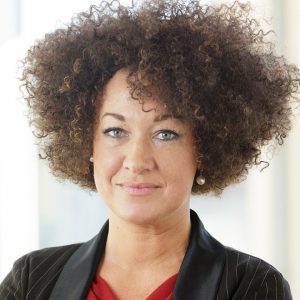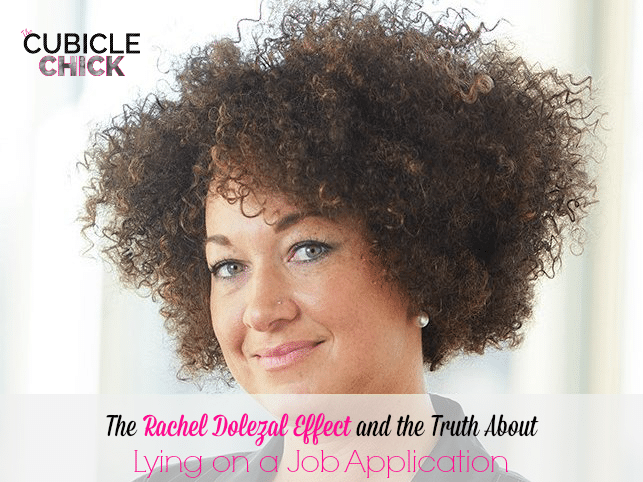The Rachel Dolezal Effect: Purposely going through great lengths to lie about who you are and falsifying information for professional and personal gain.
By now, you are probably familiar with the name Rachel Dolezal. She has been thrust into the spotlight and has undergone a lot of media scrutiny (some would say rightfully so) for playing the role of an African American woman, when in fact, according to her parents, she isn’t black at all, but white.
As the head of the NAACP in her town of Spokane, Washington and a Professor of African studies at Eastern Washington University, Dolezal is an activist in every sense of the word. But what really gives this story controversy and sizzle is that she allegedly lied on job applications for the NAACP and chairman for the Office of the Police Ombudsman stating that she was African American (racial ethnicity is often asked on applications). Some would say that she got these positions because of the ethnic origin she claimed on the application. She also received a full-ride to Howard University, a historically Black college which she applied to as an African American woman.
I am not about to go into my personal feelings about Rachel Dolezal and the lies and mistruths she has propagated for most of her adult life. But as a Career Writer, I do want to discuss the problems with lying on a job application, and the issues that it can cause your overall career and professional standing.
Recently I was a guest on Al Jazeera America in which the discussion was lying about job references and padding resumes with false experience. I said it then that at the end of the day, it’s not what you can get away with—it’s the standard at which you hold yourself accountable. In these instances, honesty is always the best policy—who wants to spend their careers looking over their backs in fear of being outed? Talk about stress!
 If you don’t have the experience or the background, it is best to work to obtain it. Volunteer, work pro-bono, and get your weight up so that you don’t have to lie and you are actually qualified for the job that you apply for. There is no need to lie or spend your life being someone who you aren’t for the sake of notoriety.
If you don’t have the experience or the background, it is best to work to obtain it. Volunteer, work pro-bono, and get your weight up so that you don’t have to lie and you are actually qualified for the job that you apply for. There is no need to lie or spend your life being someone who you aren’t for the sake of notoriety.
For Rachel, it wasn’t her intelligence, talent, or experience that was the issue. It was her color. Of course, you can be a white woman and hold a position with the NAACP and the local police department. But for some reason, Rachel either identifies more with being black, or felt that being a person of color would give her a better shot at the job.
That isn’t even half as bad, though, as lying to a college. With the staggering amount of money a college tuition demands, how could Rachel take away that opportunity from someone who truly met the criteria and needed the scholarship? Professionally and personally speaking, behavior like that is deplorable.
Here’s the thing: lying on your application about race, experience, past job history isn’t against the law. But, it is unethical, and, if found out, you could be sued civilly, especially if there were large costs associated with you taking the job (paid moving expenses, etc.) and bonuses earned. You will most certainly also be blacklisted and “unable to work in this town again”—cue the Old Hollywood dramatic music.
When you sign most job applications, it states that you are giving accurate and true information. And if the information is founded to be untrue, you will be disqualified for the position or terminated if it is later found out.
Why take the risk for a temporary fix?
The truth is, lying on your job application is just plain wrong and causes the employer to work even harder to discern if you honest and trustworthy. It makes it more difficult for those applicants who are truly qualified and who are on the up-and-up.
Rachel’s story is still being played out in the press, and as of this post, information is still coming out about her past and misrepresentations. But any way it goes, a lie is a lie is a lie. She will most certainly have issues with credibility for the rest of her career.
What’s say you? What are your thoughts on Rachel Dolezal?
For more on Rachel Dolezal, read ‘The damage Rachel Dolezal has done‘ by Jonathan Capehart of the Washington Post.









Leave a Reply